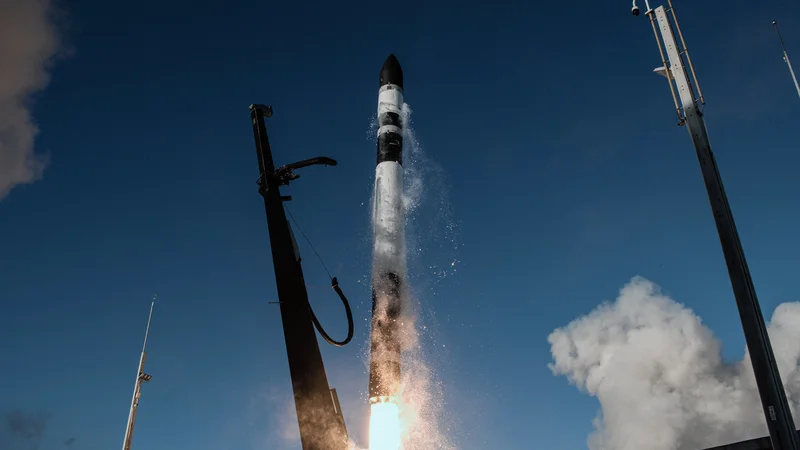Rocket Launch Today: What Happened?
SpaceX's Launch Doubleheader: Not Just Satellites, But a Symphony of Progress
Okay, friends, buckle up, because what happened last night wasn't just a couple of rocket launches; it was a statement. SpaceX pulled off a double Starlink mission, sending two Falcon 9 rockets soaring into the inky black, just hours apart. And honestly, that’s the kind of thing that makes you sit back and think, "Wow, we're really doing this, aren't we?"
I remember a time when a single launch was a major event, the culmination of years of planning and engineering. Now? SpaceX is slinging satellites into orbit like it's Tuesday. We saw Falcon 9 booster B1092 fly for an eighth time. But this isn't just about speed or quantity, I think it's about something much more fundamental: reliability. It's about turning space access into a routine, something predictable and dependable, which honestly? It’s the unsung hero of this whole story.
The Dawn of Routine Space Access
This reliability, this routine, is the key to unlocking the true potential of space. Think about it: when air travel was new, it was a luxury, a dangerous undertaking for the wealthy few. Now, it's how we connect the world, how we experience different cultures, how we do business. What if space travel could become the same? What if access to orbit was as simple as booking a flight?
That's the future SpaceX is building, brick by reusable brick. And it's not just them, either. Blue Origin and ULA had back-to-back liftoffs just the day before, a real flurry of activity at Cape Canaveral. I saw that Blue Origin had to postpone a launch due to a solar storm, which just goes to show how many factors are at play here. It's a complex dance, and they're getting better at leading. Did solar storm force New Glenn scrub? Blue Origin postpones rocket launch again It's a complex dance, and they're getting better at leading.
Space Force officials are feeling the heat, too. Colonel Brian Chatman, who commands Space Launch Delta 45, pointed out that keeping up with this pace means ensuring they have enough qualified personnel – the engineers, the technicians, the specialists. It's not just about the hardware; it's about the human capital that makes it all possible, and that's an investment we have to make.

We're talking about a paradigm shift, a complete reimagining of our relationship with the cosmos. Instead of viewing space as a distant, unattainable frontier, we're starting to see it as an extension of our own world, a place where we can live, work, and explore. But what does that actually mean for us, the average person? Well, imagine a world with ubiquitous, low-cost internet access, powered by constellations of satellites like Starlink. Imagine real-time global communication, instant access to information, and educational opportunities for everyone, everywhere. That’s the promise.
Now, I know what some of you are thinking: "Is this really a good thing? Are we just going to fill the skies with more junk?" And those are valid concerns. With great power comes great responsibility, as they say. We need to be mindful of the environmental impact of these launches, the potential for space debris, and the ethical implications of widespread satellite surveillance. But I truly believe that the benefits outweigh the risks, as long as we proceed with caution and a commitment to sustainability.
I saw one comment online that really struck me. Someone said that SpaceX is turning the Space Coast into the "world's busiest spaceport," aiming for aircraft-like operations. And that really hit home for me. Think about the Wright brothers and their first flight at Kitty Hawk. It was a tiny, fragile thing, but it sparked a revolution. Now, we have airports all over the world, connecting people and cultures in ways that were unimaginable just a century ago. This feels like that kind of moment, you know? A turning point.
I watched a replay of the launch webcast. The commentator mentioned the booster landing on the drone ship, "A Shortfall of Gravitas." The name itself is just… perfect. It's a nod to the audacity of the whole endeavor, the sheer improbability of landing a rocket on a floating platform in the middle of the ocean. But they're doing it, again and again, pushing the boundaries of what's possible.
A Launchpad to Tomorrow
This isn't just about rockets and satellites; it's about human potential. It's about our ability to innovate, to overcome challenges, and to reach for the stars, literally. It's about creating a future where anything is possible. And honestly, when I see these launches, I can't help but feel a surge of hope, a sense that we're on the cusp of something truly extraordinary.
-

Warren Buffett's OXY Stock Play: The Latest Drama, Buffett's Angle, and Why You Shouldn't Believe the Hype
Solet'sgetthisstraight.Occide...
-

The Business of Plasma Donation: How the Process Works and Who the Key Players Are
Theterm"plasma"suffersfromas...
-

The Great Up-Leveling: What's Happening Now and How We Step Up
Haveyoueverfeltlikeyou'redri...
-

NJ's ANCHOR Program: A Blueprint for Tax Relief, Your 2024 Payment, and What Comes Next
NewJersey'sANCHORProgramIsn't...
-

The Future of Auto Parts: How to Find Any Part Instantly and What Comes Next
Walkintoany`autoparts`store—a...
- Search
- Recently Published
-
- Microsoft Stock: AI Revolution vs. Investor Jitters
- John Ternus at Apple: Net Worth, Age, and Tim Cook Succession Plans
- Google Stock: Berkshire Hathaway's Billion-Dollar Bet and What We Know
- CoinMarketCap: Crypto Prices, Bitcoin vs. XRP, and What's Real
- Indigo: What's the Story?
- Daniel Driscoll and the Army Overhaul: What It Means for the Future of Defense
- Mars' Orbit: What We Know About Earth, Venus, and the Other Planets
- Firo Hard Fork: What to Expect and Why It Matters
- USAA Insurance: Car, Life, and Health—What We Know
- Nvidia Stock: Huang's "Incredible News" vs. What the Price is Actually Doing
- Tag list
-
- carbon trading (2)
- Blockchain (11)
- Decentralization (5)
- Smart Contracts (4)
- Cryptocurrency (26)
- DeFi (5)
- Bitcoin (32)
- Trump (5)
- Ethereum (8)
- Pudgy Penguins (7)
- NFT (5)
- Solana (5)
- cryptocurrency (6)
- XRP (3)
- Airdrop (3)
- MicroStrategy (3)
- Stablecoin (3)
- Digital Assets (3)
- PENGU (3)
- Plasma (5)
- Zcash (6)
- Aster (5)
- investment advisor (4)
- crypto exchange binance (3)
- SX Network (3)
